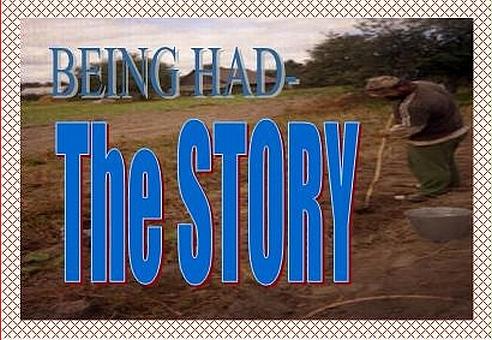A Russian tragedy...
 |
| Once soulful and historic, the Russian village is dying. Will the state survive? |
Today I am experimenting with some different things to try and make the grass cutting easier. I have that weed whacker as you know but I have found that it is very difficult to keep the fishing lines from breaking. The problem is that when you are spinning, if you run into pretty much anything hard; an older weed, a stick, a rock- even the edge of the fence, the lines get caught and end up breaking off. This happens all the time and it is very frustrating and makes for slow going when you have to stop and replace the line; even as often as every five minutes.
A few days ago I bought what is supposed to be the second thickest line they have. I will give this a try along with my own attempt at innovation; a couple of meters of plastic covered steel rope of about the same thickness. I am also thinking of sliding a couple of long screws through the aperture and see how they do.
I have been thinking also that it might be interesting to try going from a wooden pole for my scythe to an aluminum pole. I have no idea where I can get a two meter piece of 2" aluminum tubing in Pinsk. I am not sure there is a place where such a thing can be found, maybe in Minsk, but as of the moment I have not found it. My theory is the same as with baseball bats; aluminum will be lighter and stiffer and there will be no movement from the blade at all which will make it a better cutting tool. Of course none of this is village technology, but then again, I am not from the villages.
Speaking of village culture, I got from my very good friend Bob Dowlut an interesting article from The Walrus called "A Russian Tragedy" which ios about the sinking population of the Russian village and in Russia in general. The article, written by Alex Shoumatoff, is a description of a trip through Russia's interior in which the author finds that due to both social and economic pressures, there are literally thousands of viliges which are simply going to disapear from the map. The outlook he says is as bleak as the landscape which is littered with the remains of abandoned factories, empty domics returning to the elements and poluted by garbage, toxic wastes and nuclear fallout. The most pessimestic arguments offered say that Russia might lose as much as 25% of her population by midcentury. The most optimistic though is that gentrification will allow for a rebirth of at least the areas close enough to the centers for the new rich to enjoy their weekends there.
I have seen similar things in our village. The population is made up almost completely of pensioners. Their children come out on harvest and planting days to help out, but in general have no interest in living the live of the vilages; all have left to find greener ($) pastures far from home. Of the people whom one might considder younger, almost all are hopeless alcoholics. There are a few children, boys and girls of high school age who are aroound during the summers, riding bikes and visiting with friends. But all of them have plans to go away to more interesting places.
I often wonder whether or not they will simply bulldoze away out little village some day. I am not the only one who thinks this and several of the pensioners agree that this is probably the future of the place they have spent their entire lives.
My village has existed for a long time, even during the time of the Russian and Polish landowners. All of our people remember the names of the Chaizain and his family and where the old borders used to be. They also remember who lived in those few houses, now abandoned, which are now slowly going back to the elements.
I have some plans for my little patch of land though. I have Egor and Egr to think of and I think a little small-scale agricultural business would do well to keep the boys fit and allow for some money into their pockets. All of this is still possible to do with very little investment beyond time and labor. I suppose this is all that was ever necessary to live in the world in the days before the industrial and social revolutions drove the people to the city's factories. I guess I don't see any kind of return-to-the-land movement ahead, at least not without the prompting of nuclear bombardment to urge it along. I don't really believe in this theory, but it was the first thing that came to mind.
Anyway, I have to run. I have 15 minutes till the bus and only a few hours to get a lot done. I'll go up twice this week trying to keep things in order. I like it better when the place appears to be kept up.
More soon…






















